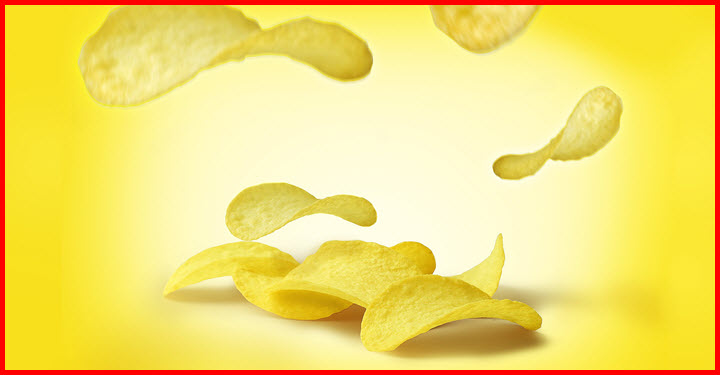There Is No Decency In These Guys Marketing

The junk food industry doesn't care about our health – even children's health. Their marketers use all the tricks in the book to boot their profits. It may seem like a little white lie to them (meaning it's legal) but the average buyer has a whole different perception about what is being said.
So let's dive in. Here are my top 7 junk food industry lies:
1. Low-Fat or Fat-Free
One of the side effects of the “war” on fat was a plethora of processed products with reduced amounts of fat.
These products typically have labels saying “low-fat,” “reduced fat” or “fat-free.”
The problem is that most of these products are not healthy at all.
Foods that have had the fat removed from them typically do not taste as good as the full-fat versions. Few people want to eat them.
For this reason, food producers load these products with added sugar and other additives (1).
It is now known that fat has been unfairly demonized while growing evidence has been revealing the dangers of added sugar.
What this means is that “low-fat” foods are usually much worse than their “regular” counterparts.
Summary If a product has the words “low-fat” or anything similar on the label, it probably contains added sweeteners. Keep in mind that these processed foods are not necessarily a healthy choice.
2. Trans Fat-Free
Processed foods often have “trans fat-free” on the label. This doesn't necessarily have to be true.
As long as a product contains fewer than 0.5 grams of trans fats per serving, they are allowed to put this on the label (2).
Make sure to check the ingredients list. If the word “hydrogenated” appears anywhere on the label, then it contains trans fats.
It's actually not uncommon to find hydrogenated fats in products that are labeled trans fat-free.
Summary Avoid everything that contains the word “hydrogenated.” Food products labeled trans fat-free may actually contain up to 0.5 grams of trans fat per serving.
3. Hidden Sugar
Unfortunately, most people don't read ingredient lists before making a purchase.
But even for those who do, food manufacturers still have ways of disguising the true contents of their products (8).
On ingredient lists, the components are listed in descending order by amount. If you see sugar in the first few spots, then you know that the product is loaded with sugar.
However, food manufacturers often put different types of sugar in their products. A food may contain sugar, high-fructose corn syrup and evaporated cane juice, which are all different names for the exact same thing — sugar.
This way, they can have some other, healthier-sounding ingredient as number one on the list. Nevertheless, if you were to add up the amounts of these three different types of sugar, sugar would be at the top.
This is a clever way to mask the true amount of refined sugar in processed foods.
Here’s an article on the 56 most common names for sugar.
Summary Make sure to check whether a product contains more than one type of sugar. If that’s the case, sugar may really be among the top ingredients.
4. Small Amounts of Healthy Ingredients
Processed products often list small amounts of ingredients that are commonly considered healthy.
This is purely a marketing trick. Usually, the amounts of these nutrients are negligible and do nothing to make up for the harmful effects of the other ingredients.
This way, clever marketers can fool parents into thinking they're making healthy choices for themselves and their children.
Some examples of ingredients often added in tiny amounts and then displayed prominently on the packaging are omega-3s, antioxidants and whole grains.
Summary Food manufacturers often put small amounts of healthy ingredients in their products to fool people into thinking that the products are healthy.
5. “Organic” Unhealthy Ingredients
Although organic food can have some benefits, many food manufacturers use the word “organic” to mislead people.
For example, when you see “raw organic cane sugar” on an ingredient list, this is basically the exact same thing as regular table sugar.
Just because something is organic does not mean that it is healthy.
Summary Many foods contain unhealthy ingredients that happen to be organic. This does not mean that they are any healthier than their non-organic counterparts.
Some other lies you might want to read about in the source article.
- Low – Carb doesn't mean it's healthy
- Hidden controversial ingredients
- Fruit Flavored – to make it sound natural
- Calories Per Serving — how big?
- Gluten Free – are the replacement ingredients healthy
- Includes Whole Grains
Reading the food label lies – the video tells you about some of them.
.
Through the processed food away – get the “Body Reboot” book and find out what happens when you eat real food.
The featured image came from pixabay.com
For more lies being told – go to the source article.
